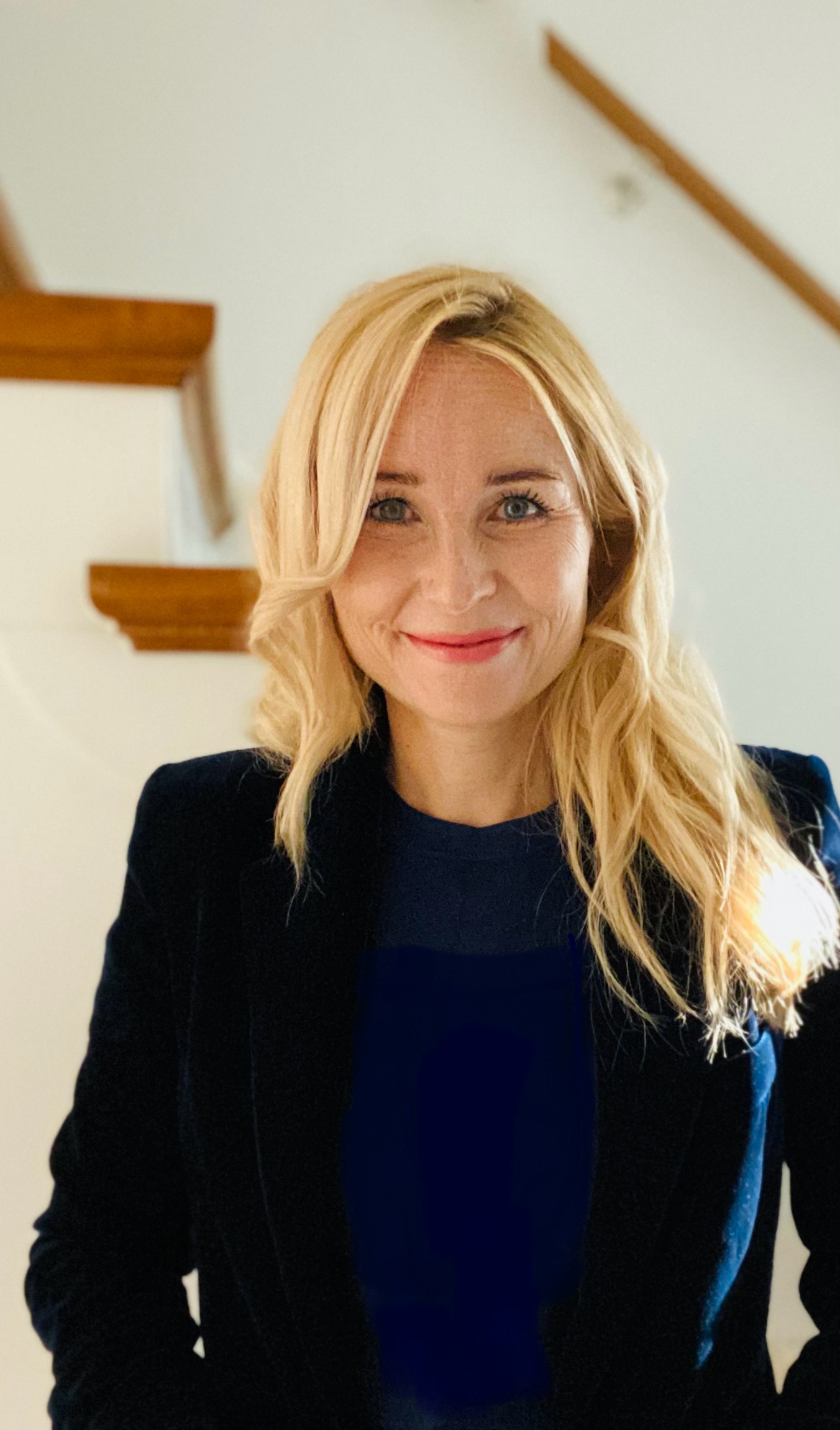CHANCE Events
These initiatives are organised under the CHANCE project. For more information about CHANCE, click here.
-
Conference: A stronger Europe in the world - Resilience-building in the EU's eastern neighbourhood before and after the Russian war against Ukraine
This online thematic workshop is organised by the CHANCE Jean Monnet Chair and the Centre for European Research in Maastricht - CERiM. It will be dedicated to the European Commission’s political priority ‘A stronger Europe in the world’, and discuss it from the perspective of resilience-building in the EU's eastern neighbourhood before and after the Russian war against Ukraine.
27 March 2023 (online).
Here you can find the Special Issue publication that resulted from the conference in the Journal of Contemporary European Studies.
****************************************************************************************************************************
CHANCE Policy Brief in CERiM Paper Series
Bosse, G. (2022) Taking stock of the EU's actions towards Ukraine since the Russian invasion: The difficult transition from crisis response to longer-term strategy
The EU’s response to the 2022 Russian war against Ukraine has been widely described as unprecedented in scope and unexpected speed, displaying a rare unity among its member states. One year on, and without an end to the Russia's war in sight, the question arises how well the EU has fared in transitioning from its remarkable 'crisis response' to developing longer-term strategies to support Ukraine. This article reviews the EU's actions towards Ukraine in four main areas: (a) the integration of refugees from Ukraine, (b) Ukraine's accession to the EU, (c) EU military and financial aid to Ukraine and (d) the effectiveness of EU sanctions. While the EU has written history with its initial response to the Russian invasion, it currently struggles to find longer-term strategies to address the effects of the war, and the serious geopolitical challenges arising from it.
Read the Policy Brief here.
****************************************************************************************************************************
Beirut 6:07 Screening
“Beirut 6:07,” a series of 15 short films that showcase the Beirut August 4th 2020 explosion from different vantage points, while highlighting stories of victims as well as of survivors.
The 15 short films were written and directed by 15 different Lebanese filmmakers, each portraying the raw emotions that some survivors still feel to this day and their perspective of the event from different, yet slightly unified, points of view.
The project was titled Beirut 6:07 as a reference to the time of the explosion in the city.
On the 11th of May 2022, CHANCE will screen 7 of those short films at Lumière Cinemas, at 18:00 CET.
The event programme is as follows:
Screening will start at 18.07 as a tribute to the fallen victims of the explosion.
Bloc 1:
Batroun by Ingrid Bawab (10 min 8 sec)
Mira by Lucien Bourjeily (7 min 53 sec)
Trobil by Karim Rahbani (10 min 3 sec)
Bloc 1 will be followed by a virtual Q&A via zoom with the directors and actors of the films mentioned above. As well as, with the project manager Fadi Harb who will discuss the making of Beirut 6:07.
Bloc 2:
The Van by Wassim Succar (8 min 30 sec)
Best Day of My Life by Nadim Tabet (10 min)
Imad by Sandrine Zeynoun (10 min 2 sec)
The Lucky Ones by Alain Sauma (8 min 23 sec)
Bloc 2 will be followed by a discussion on PTSD and mental wellbeing with
Saara Martinmaki – researcher at MSF Expat Health & Wellbeing Study and project coordinator for the ARQ International - to 1) identify symptoms of PTSD, 2) shed light on the mental struggles of people who were affected by such a traumatic event, and 3) emphasize the importance of psychological but also community support for victims of traumatic incidents.
The event aims to reach out to Lebanese students in Maastricht who might be struggling to adjust to their everyday routine after the explosion. It also seeks to promote communal understanding of the struggles some international students might have been through and to create a sense of empathy and support among the student community in Maastricht.
****************************************************************************************************************************
Euro-Arab Conversations Lecture Series
The Euro-Arab Conversations Lecture Series is organised by academic assistant Charelle Abdallah to promote Euro-Arab dialogue and to further explore the dynamic between the European Union and the Arab World, in all of its aspects. The guest lecturers will discuss the cultural, political, economic, and financial relations between the two regions to widen our understanding about the interrelation between the two agents, and their positionality as international players in a globalized world.
This lecture series is organised in the framework of The Jean Monnet Chair in EU Politics in a Changing Global Context (CHANCE) which is held by Dr. Giselle Bosse. The Chair aims to widen the focus of European Studies at the Faculty of Arts and Social Sciences (FASoS) by expanding course content and research lines dealing with the challenges and chances for the EU in a changing global context.
Guest Lecturers:
Dr. Assem Dandashly - The EU and LGBTI activism in the MENA – 14th of March 2022, 18:30 – Hybrid lecture.
You can now watch the lecture here.
Assem Dandashly is an Assistant Professor at the Department of Political Science at Maastricht University. Prior to joining Maastricht University in September 2012, Assem was a Research Fellow at the Kolleg-Forschergruppe “TheTransformative Power of Europe” Freie Universität Berlin. Assem holds a PhD in Political Science (2012) from the University of Victoria, BC Canada.
His lecture will discuss his 2021 article on The EU and LGBTI activism in the MENA which uncovers the role of the European Union (EU) in supporting lesbian, gay, bisexual, transgender and intersex (LGBTI) communities in the Middle East and North Africa (MENA). The lecture will thus answer questions like; To what extent do the EU agents engage with local actors to improve transversal minority rights? Who are the agents involved? And what influences the EU approach/practice in this area? And how does the EU’s democracy promotion influence LGBTI activism in the MENA?
_______________________________________________________
Dr. Sarah Anne Rennick, Deputy Director of the Arab Reform Initiative - Arab Diasporas in European Spaces: The Mediation of Identity Formation and Mobilization – 6th of April 2022, 18.30 – Online lecture.
You can now watch the lecture here.
Sarah Anne Rennick is a Researcher at the Center for Advanced Middle Eastern Studies at Lund University. She is currently on sabbatical leave from the Arab Reform Initiative, where she is the deputy director. She is also an adjunct lecturer in political science at Sciences Po Paris. Her research focuses on social movements and alternative forms of political engagement in the Arab region. More particularly, her work explores patterns and factors influencing youth mobilization and civic and political participation, putting forth a concept of “youth” as generational political practice. She also leads the work on Arab diaspora mobilization and transnational/translocal political remittances, and their impact on the creation of new identities, solidarities, and political practices in both host and home sites.
Her lecture will focus on unpacking the complexity of identity formation and political subjectivity among Arab diasporas in Europe, looking in particular the different diasporic generations and specifically those in the post-2011 period as well as the new spaces where identity is being formed/reformed, as well as the various forms of mobilization that Arab diasporas groups are undertaking and how the triadic political opportunity structure informs how, where, and when mobilization occurs. The lecture will draw on the work she is overseeing on diaspora studies at the Arab Reform Initiative.
_________________________________________________________
Dr. Chloe Kattar, Historian of Modern Middle East - The Genealogy of Right-Wing Discourse: What Western Conservatives Took from Middle Eastern Debates (1970s-2020) – 25th of April 2022, 18.30 – Hybrid lecture.
Please register here.
Chloe Kattar is a historian of the modern Middle East and an expert of the Lebanese Civil War. She is a Research Fellow at Darwin College, Cambridge and is a 2021-22 EUME Fellow of the Forum Transregionale Studien in Berlin.
Her lecture will explore the exchange of ideas and tropes between Europe and the Arab world by examining the circulation of right-wing discourse. It will examine several concepts used by conservatives in the Middle East, France, the United Kingdom, and countries in Central Europe from the 1970s until today to reveal the Middle Eastern lineage of contemporary debates related to islamophobia, coexistence, and others.
________________________________________________________
Dr. Amer Bisat, Managing Director and Head of Sovereign and Emerging Markets investments at BlackRock - The Political Economics of Arab/European Relations – 17th of May 2022, 18:30 – Online lecture.
Please register here.
Amer Bisat is a Managing Director and Head of Sovereign and Emerging Markets (Alpha) investments at BlackRock, where he leads a team managing approximately $20 billion in government and corporate bonds. In this capacity, he works closely with the various portfolio managers in the group, formulating and implementing investable emerging markets themes in local markets, FX, and sovereign and corporate credit spaces. Prior to BlackRock, he was a partner in two macro hedge funds (Traxis and Rubicon), and held portfolio management responsibilities at UBS and Morgan Stanley Investment Management. Between 1991 and 1998, he was a senior economist at the International Monetary Fund where he helped negotiate high-profile programs with Russia, Ukraine, and Egypt.
Bisat has taught graduate level economics courses at Columbia University. He co-authored a book on globalization and academic and policy papers on growth and financial sector development issues. He is a trustee of a number of Middle Eastern cultural and art institutions and a member of the Council of Foreign Relations.
****************************************************************************************************************************
Extracurricular Course ‘Another Sustainability: Approaches Beyond the Mainstream’
Starting on 15 March and ending on 17 May 2022, the extracurricular course ‘Another Sustainability: Approaches Beyond the Mainstream’ is now open for registration. The course is co-organised by Tiago Pestilla Fabbri in the framework of the Jean Monnet Chair in EU Politics in a Changing Global Context (CHANCE), held by Dr. Giselle Bosse.
With guest lecturers from different backgrounds, documentary movies and the active participation of students, the course will bring theories and paradigms that normally have limited space in the debates about sustainability.
There are only 56 spots for this course and registration will be on a first-come, first-served basis. We encourage you to register early! Also, be aware that students will be divided into two groups; the first will have tutorials from 18:30 to 19:30 and the second from 19:45 to 20:45.
Although this is an extracurricular course, students who attend at least 80% of the sessions will receive a certificate at the end of the course confirming their attendance and learning outcome.
To register, please send an e-mail to t.pestillafabbri@maastrichtuniversity.nl informing your name, student number and the programme you are registered in.
****************************************************************************************************************************
Extracurricular Course “EU International Relations and Climate Change”
The extracurricular course "EU International Relations & Climate Change" will take place in this semester for the third time. The feedback of the first two editions was extremely positive and the demand very high.
The course will take place on every Thursday evening, starting on 17 February and ending on 05 May 2022. The course is co-organised by Niklas Mayer in the framework of the Jean Monnet Chair in EU Politics in a Changing Global Context (CHANCE), held by Dr. Giselle Bosse.
In "EU IR & CC" we explore how Climate Change consequences (such as Sea Level Rise, Droughts and extreme weather events), as well as related phenomena (such as climate change-related migration and rising geopolitical interests over the melting Arctic) affect the EU and its member states and how Europe engages on the international scene with its foreign policy to address these multifaceted challenges.
We cover basic principles of natural science to understand aspects of climate change, as well as political science, development studies and economic arguments.All of the 40 students who are participating in this course this semester already tried to register for this course in the last semester, but due to the high demand were placed on the pre-registration list for this semester.
****************************************************************************************************************************
JM CHANCE chair Giselle Bosse participated in citizens’ panel on “EU in the world/migration” in the context of the Conference on the Future of Europe
Last week, Giselle Bosse participated as an expert speaker at one of the European Citizens' Panels organized by the European Parliament. The panel on “EU in the world/migration” was held online and involved 200 citizens who developed and presented policy recommendations for the future of the EU during two days of discussion.
The European Citizens' Panels are part of the Conference on the Future of Europe and are an opportunity for European citizens to debate on Europe’s challenges and priorities. This exercise of deliberative democracy was officially launched on Europe Day and will last until April 2022, also addressing topics such as climate change, social justice and democracy.
For more information, please visit https://futureu.europa.eu/pages/panels.
****************************************************************************************************************************
Chance Lecture Series 2021
The programme of the first three lectures of the CHANCE Lecture Series is now available for download.
19 March 2021 - Elizabeth Press (International Renewable Energy Agency, Director for Strategy): “What does the EU do to promote renewables globally?”
09 April 2021 - Pablo Ferrandez (Internal Displacement Monitoring Centre): “Climate Change and Displacement - Challenges and Work to be Done”
23 April 2021 - Niclas Svenningsen (Global Climate Action Manager, UNFCCC): “What is the future of the UNFCCC and how to make the Paris Agreement more ambitious?”
07 May 2021 - Lisse Van Vliet (Energy Community): “The Energy Community and Gas Sector Reforms in Ukraine, Moldova and Georgia: from implementing the third energy package to exploring hydrogen opportunities.”
04 June 2021 - Prof. Eduardo Viola (Universidade Brasilia): “The EU and Brazil: How to Move Forward on Climate Cooperation?”Further information will follow in due course. You can register and address your questions to n.mayer@maastrichtuniversity.nl
****************************************************************************************************************************
Policy Paper on Freedom of Speech and Media Plurality in the Context of the Pandemic
The COVID-19 health crisis has swept across the world and impacted every aspect of life. As we approach one year into the pandemic, we want to better understand its consequences and transformative potential for positive change. The CHANCE Chair is delighted to announce the release of the first EaP CSF COVID-19 Policy Paper on freedom of speech and media plurality in times of COVID-19. This paper is part of a series of thematic policy papers that we are releasing throughout the coming weeks.
Giselle Bosse, Alena Vieira and Moritz Hoepner, witht the research assistance of Serena Rosadini, analyze the positive and negative changes fuelled by COVID-19, with respect to the freedom of expression across the six EaP countries. Moreover, the paper examines the role of media in providing reliable information about COVID-19 and evaluates the impact of digitalisation on independent media. Finally, the paper enumerates a series of recommendations to be taken by the EaP governments, EU institutions and EaP CSF. Read the main recommendations below and download the full paper here.
****************************************************************************************************************************
Webinar: 'How to write a policy brief'
9 December 2020, 13:00-14:00
Webinar for BA and MA students at Maastricht University and University of Minho - with Dr. Giselle Bosse and Dr. Alena Vieira (University of Minho).
****************************************************************************************************************************
‘Freedom of speech and media in the COVID-19 context’
8 December 2020
Dr Giselle Bosse, Dr Alena Vieira and Dr Moritz Höpner present preliminary findings of their policy study on ‘Freedom of speech and media in the COVID-19 context’ at the Eastern Partnership Civil Society Forum 12th Annual Assembly. The Annual Assembly – “EaP beyond 2020: renewing commitments to rights, security, and the green agenda“, was held on December 7-10, 2020, bringing together more than 300 CSOs and EaP and EU decision-makers to explore the contours of the EaP policy beyond 2020.
****************************************************************************************************************************
Conference: "A stronger Europe in the World"
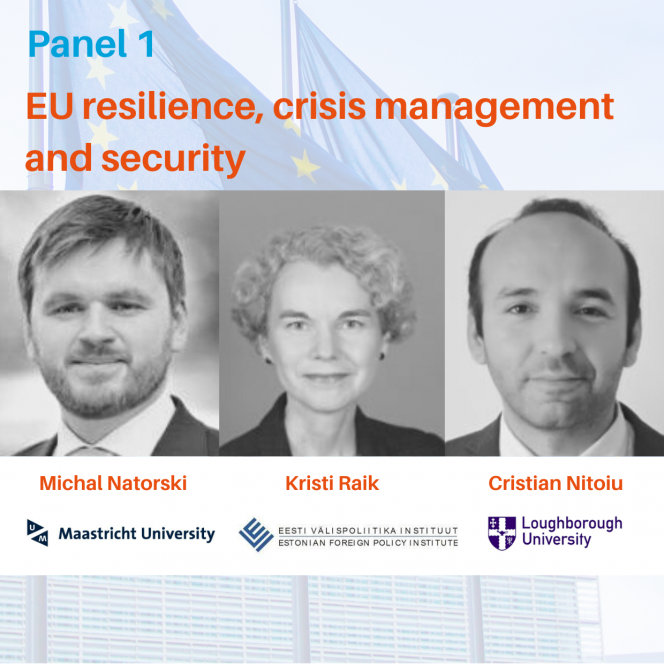
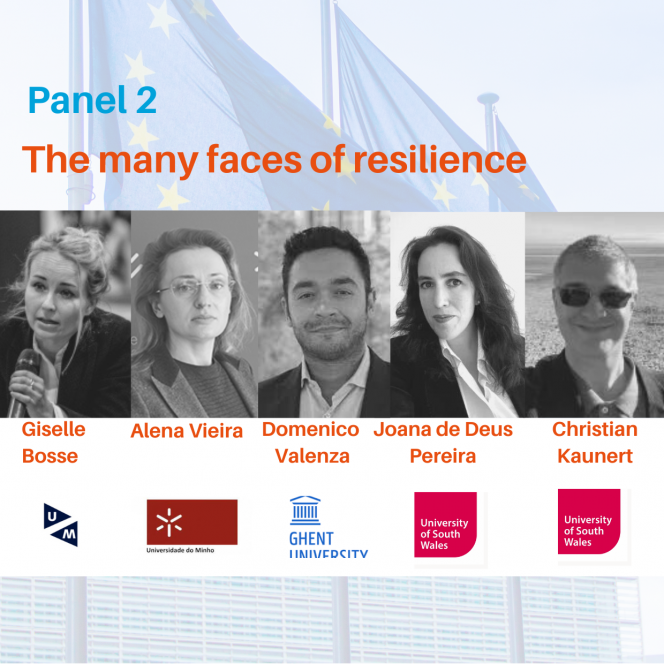
Maastricht University students interview Virginijus Sinkevičius and Margrethe Vestager
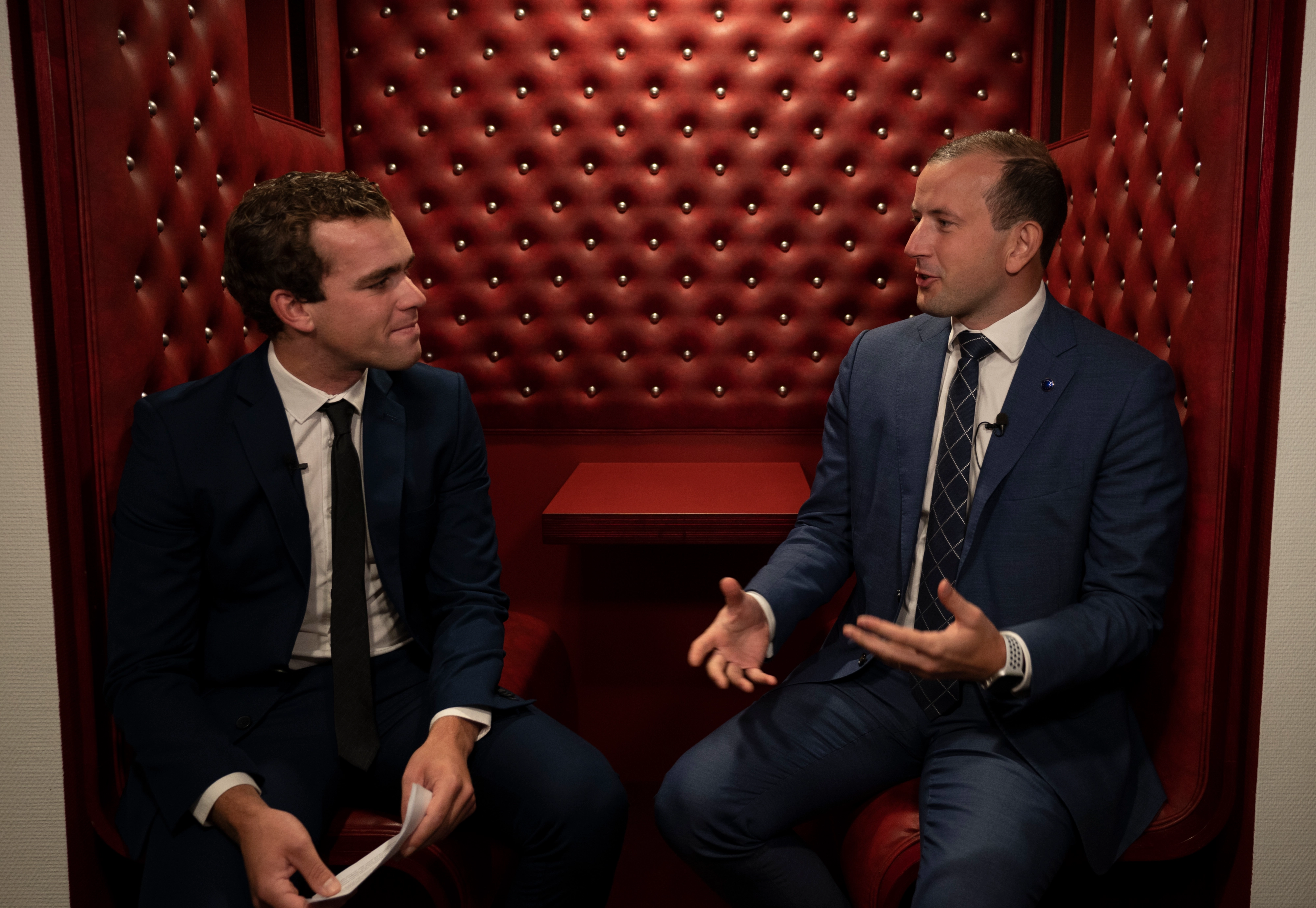
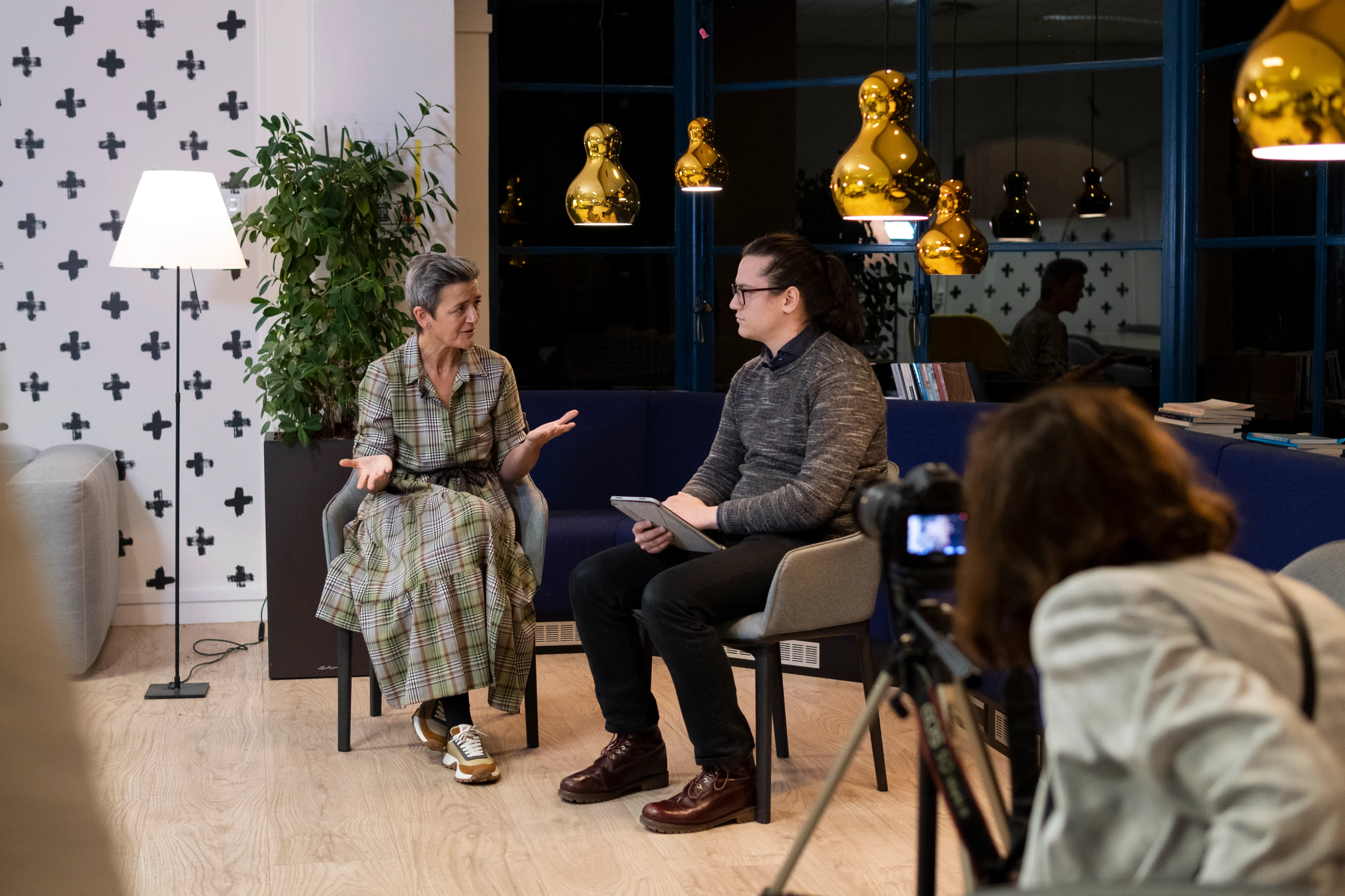
Jean Monnet Chair Dr Giselle Bosse participates in Conference on the Future of Europe
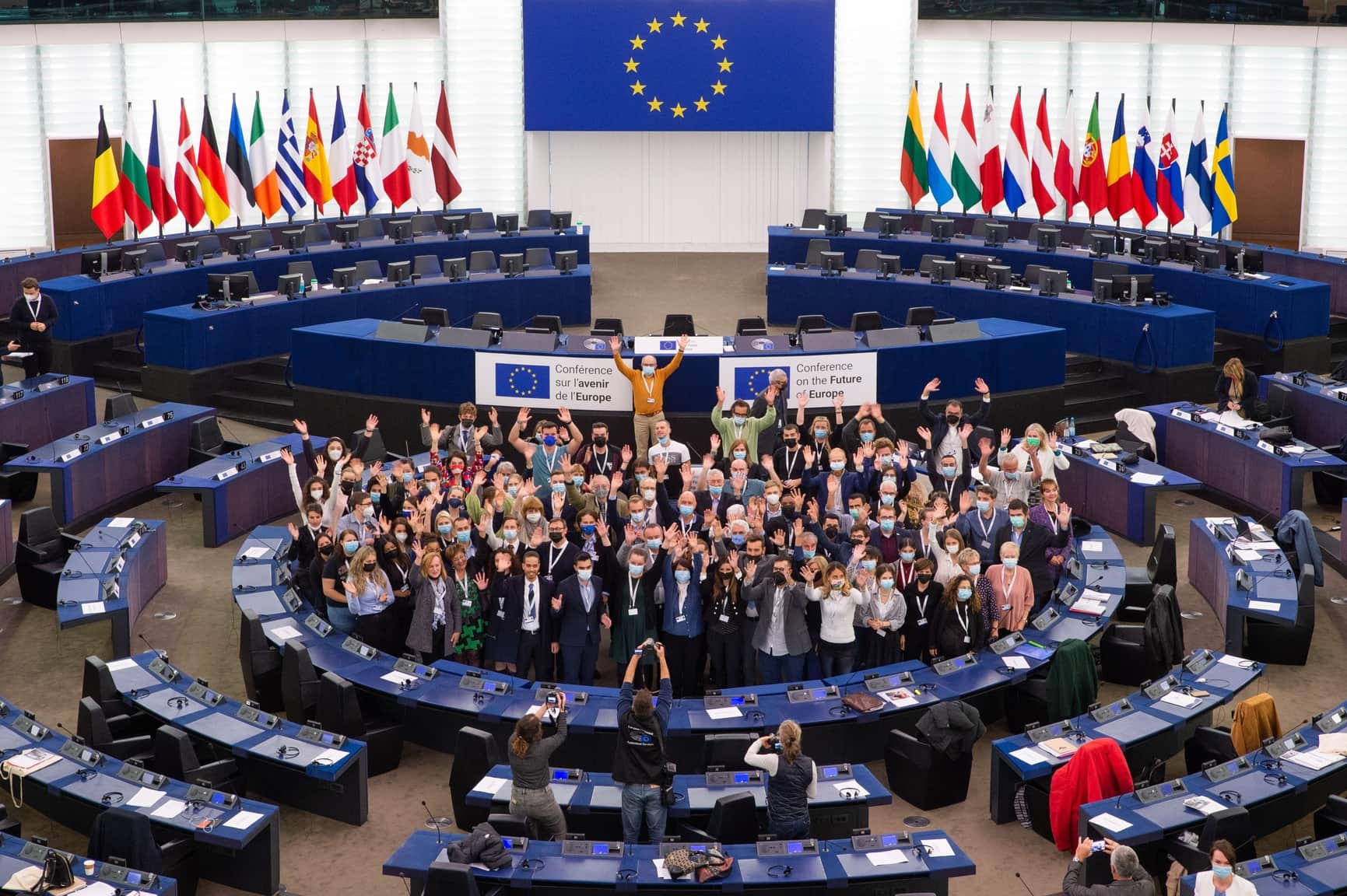
Special Issue Publication in Contemporary European Studies
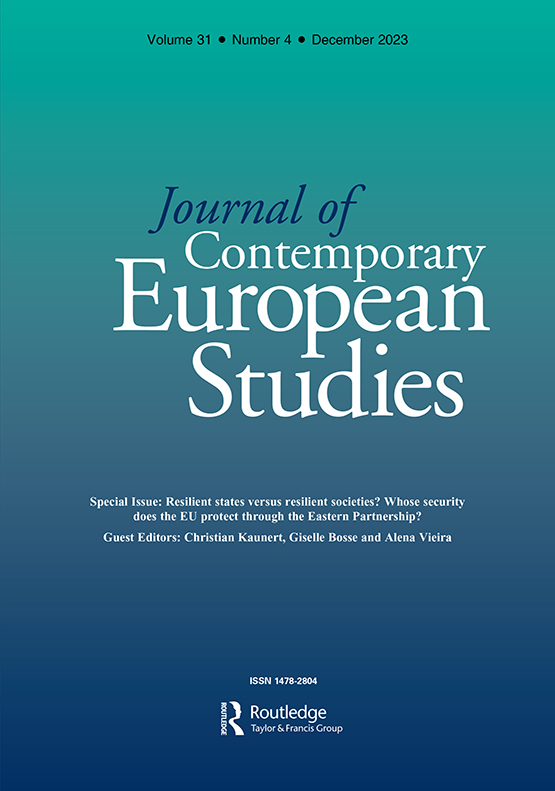
Special Issue: Resilient states versus resilient societies? Whose security does the EU protect through the Eastern Partnership?, Guest Editors: Giselle Bosse, Christian Kaunert and Alena Vieira.
Policy Report on Freedom of Speech and Media Plurality in the Context of the Pandemic

AUTHORS: Giselle Bosse, Moritz Höpner, Alena Vieira
Policy Report presented at the EaP Civil Society Forum
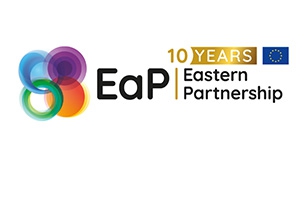

Students at Jean Monnet Lecture Series

Students meet Margrethe Vestager
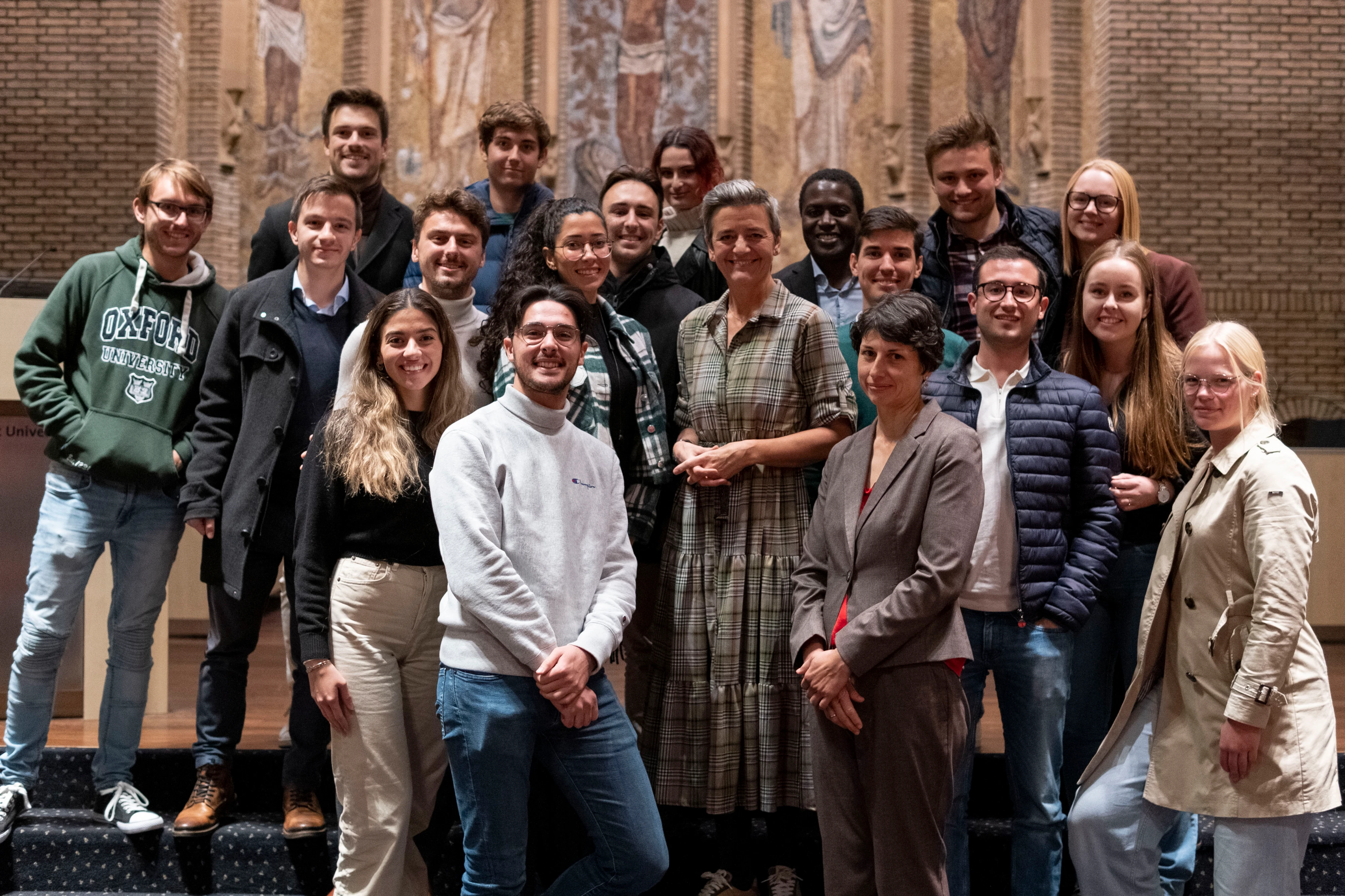
Students attending Extracurricular Course

Prof Eduardo Viola (Universidade Brasilia)
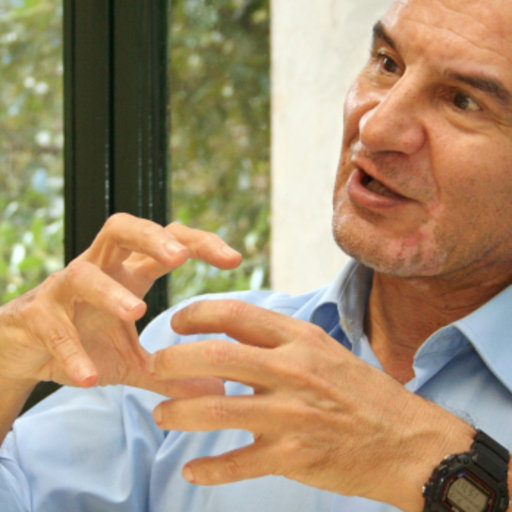
Dr Sarah Anne Rennick (Director, Arab Reform Initiative)
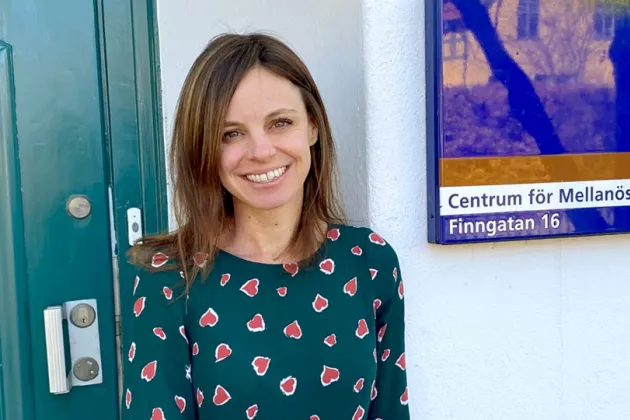
Academic Assistants
Niklas Meyer, PhD candidate
Charelle Abdallah, MA student
Tiago Pestilla Fabbri, Research Officer
Jean Monnet Chair
